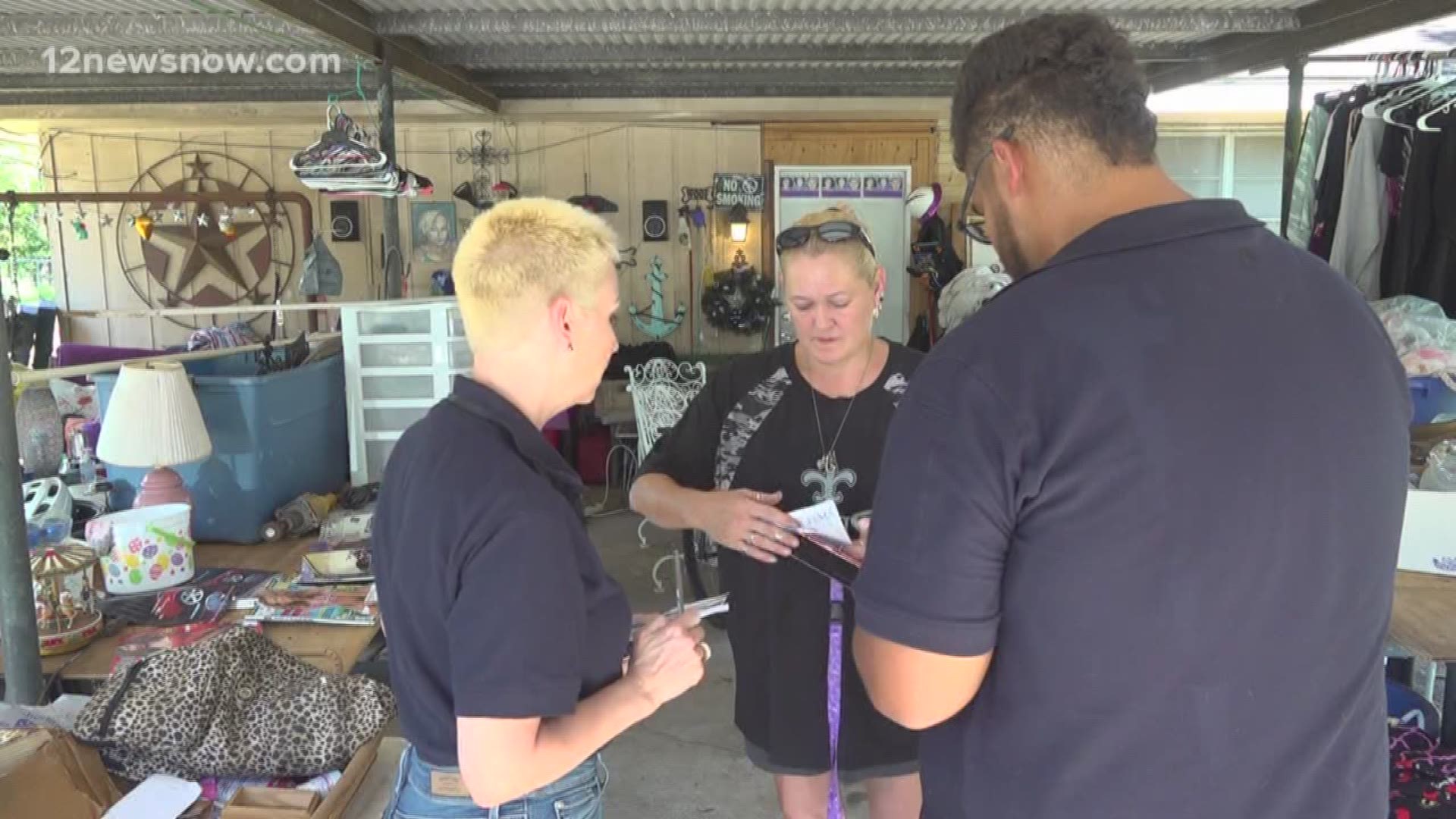BEAUMONT, Texas — After Imelda devastated Southeast Texas with flooding rain, FEMA is reminding victims there are a few things to be aware of when it comes to inspections made by the organization.
Qualified residents in Jefferson, Chambers, Harris, Liberty, Montgomery and Orange counties will get a call from a FEMA housing inspector after applying for federal assistance to schedule an appointment. The appointment will likely be set for 7-10 days after registration.
Once confirmed they'll verify information on the application, like the registration number, before following up to assess damages you've listed.
The inspection generally takes 30-40 minutes and will involve a general examination of the home. You're encouraged to verify credentials of officials before giving any information. FEMA says they'll be wearing an official badge.
There's no fee for the inspection, and officials will review and document both structural and personal property damage to file a report. They don't determine eligibility or value of losses.
FEMA officials will review the inspection report and issue an eligibility determination letter within a week of the inspection.
If the application is approved, the letter will provide specific information on how the funds can be used.
The inspector will verify by requesting:
• photo identification, such as a driver’s license or passport,
• proof of occupancy, such as a lease, rent payment receipt or utility bill, or
• proof of ownership, such as a deed, title, mortgage payment book, property insurance policy or tax receipts.
From a FEMA news release:
After applying for federal disaster assistance for damages incurred during Tropical Storm Imelda, qualified residents in Chambers, Harris, Jefferson, Liberty, Montgomery and Orange counties will receive a call from a Federal Emergency Management Agency (FEMA) housing inspector as the next step in the recovery process. The inspector will schedule an appointment seven to 10 days after registration. Once confirmed, they will verify information on the application, such as the survivor’s registration number, and then follow up to assess the property and damages listed on the application.
The inspection generally takes 30-40 minutes and consists of a general examination of the home. There is no fee for the service. The inspector is required to review and document both structural and personal property damage to file a report, but they do not determine eligibility or the value of damage or losses. FEMA officials will review the inspection report and issue an eligibility determination letter within a week of the inspection.
If the application is approved, the letter will provide specific information on how the funds can be used. For scheduled appointments, there must be someone 18 years of age or older who lived in the household prior to the disaster present.
The inspector will verify by requesting:
• photo identification, such as a driver’s license or passport,
• proof of occupancy, such as a lease, rent payment receipt or utility bill, or
• proof of ownership, such as a deed, title, mortgage payment book, property insurance policy or tax receipts.
An authorized inspector will wear an official FEMA ID badge. Survivors are encouraged to verify credentials prior to providing any information. If the inspector is not an official FEMA representative, and requests any personal or financial information, end the meeting immediately and notify local law enforcement. Survivors may also call the toll-free FEMA Disaster Hotline at 866-720-5721.
In addition to FEMA housing inspectors, representatives from the U.S. Small Business Administration (SBA) and insurance company inspectors may visit neighborhoods in affected areas. SBA may send a packet and application for a low-interest disaster loan.
While the application must be completed and returned to that agency in order to remain eligible for other types of federal assistance, such as grants, the applicant does not have to accept the loan.

